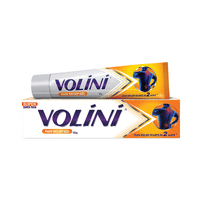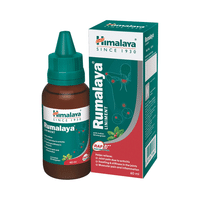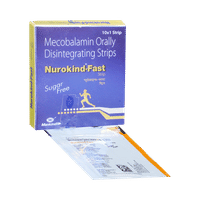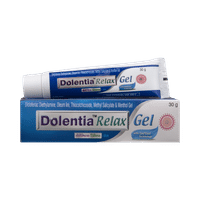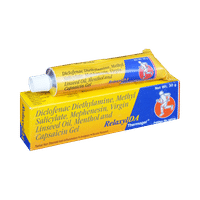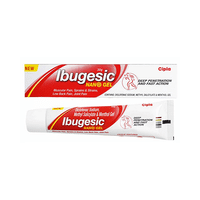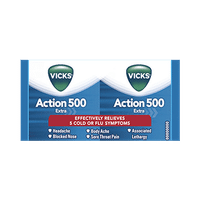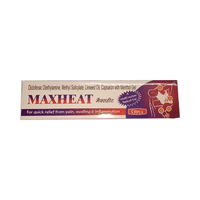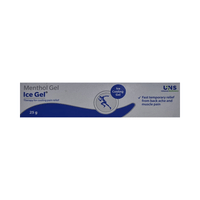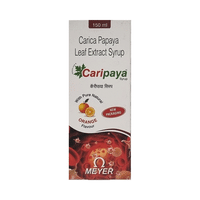Neorelax Gel साठी कृती अन्न
Neorelax Gel साठी कृती दारू
Neorelax Gel साठी कृती गर्भधारणा
Neorelax Gel साठी कृती स्तनपान
Neorelax Gel साठी कृती मेडिसिन
अन्न
दारू
गर्भधारणा
स्तनपान
मेडिसिन
No interaction found/established
No interaction found/established
Neorelax Gel is unsafe to use during pregnancy as there is definite evidence of risk to the developing baby. However, the doctor may rarely prescribe it in some life-threatening situations if the benefits are more than the potential risks. Please consult your doctor.
CONSULT YOUR DOCTOR
Neorelax Gel is probably unsafe to use during breastfeeding. Limited human data suggests that the drug may pass into the breastmilk and harm the baby.
CONSULT YOUR DOCTOR
No interaction found/established
Neorelax 1% w/w Gel साठी क्षार माहिती
Diclofenac(1% w/w)
Neorelax gel वापरते
{med_name} is used for pain relief.
Neorelax gelकसे कार्य करतो
Neorelax Gel is a non-steroidal anti-inflammatory drugs (NSAID). It works by blocking the release of certain chemical messengers that cause pain and inflammation (redness and swelling) on the skin.
Neorelax gel चे सामान्य दुष्प्रभाव
Application site irritation, Edema (swelling), Nausea, Headache, Itching, Indigestion
Neorelax Gel साठी विकल्प
51 विकल्प
51 विकल्प
Sorted By
 Rs. 25save 72% more per gm of Gel
Rs. 25save 72% more per gm of Gel Rs. 165.50pay 83% more per gm of Gel
Rs. 165.50pay 83% more per gm of Gel Rs. 188.50pay 108% more per gm of Gel
Rs. 188.50pay 108% more per gm of Gel Rs. 292.25pay 93% more per gm of Gel
Rs. 292.25pay 93% more per gm of Gel Rs. 50pay 22% more per gm of Gel
Rs. 50pay 22% more per gm of Gel
Neorelax Gel साठी निपुण सल्ला
- Diclofenac is applied to the skin to relieve inflammation and pain of joints and muscles.
- It is less likely to cause stomach side effects as compared to oral medication.
- Gently massage it into the skin of the affected area.
- Do not cover the area being treated with airtight dressings such as bandages as these may increase the risk of side effects.
- Do not apply to broken, diseased, infected, inflamed or irritated skin, or to open wounds.
- Avoid getting it in the eyes, mouth or nose. Rinse with cold water if you accidentally get it in these areas.
- It may increase the risk of sunburn. Avoid exposing the treated area of skin to excessive sunlight.
- Do not use it for longer than 14 days unless recommended by your doctor.
Neorelax 1% w/w Gelसाठी नेहमी विचारले जाणारे प्रश्न
Diclofenac
Q. Does Neorelax Gel work for back pain?
Neorelax Gel is a safe and effective option for treating joint pain, especially in cases of arthritis. It can also be used to treat acute neck pain, back pain, tendonitis, and sprains and strains.
Q. Can I use Neorelax Gel for osteoarthritis in the hip?
No, Neorelax Gel is not recommended for hip pain. The hip joint is located deep in the body. It is unlikely for this medication to be absorbed deep enough under the skin to help with joint pain in the hip.
Q. How to use Neorelax Gel?
Gently rub Neorelax Gel into the skin using your hands. You should apply it 4 times a day for best results. You might get some relief quickly (within half an hour), but if often takes a few days of use for the full benefits. Only apply to clean, dry skin that does not have any cuts, open wounds, infections, or rashes. Consult your doctor in case of any doubts. Wash your hands after applying the gel and if your hands are the treatment side, wait for at least an hour before washing your hands. You should also keep the treated area out of direct sunlight or you might develop a skin reaction.













